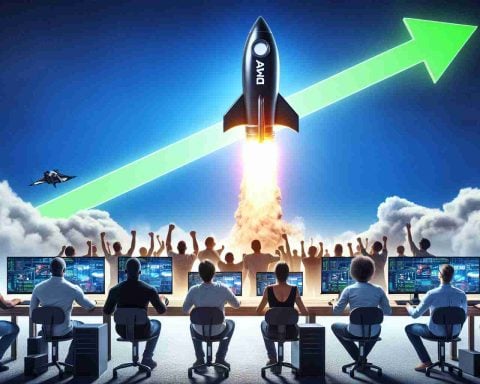The Ministry of Defence of Ukraine recently held Defence Vision Day, a groundbreaking event that showcased the latest projects utilizing virtual and augmented reality (VR/AR) technologies for military training and simulations. This event was a result of the Ministry of Defence’s competition calling for the development of innovative VR/AR systems.
A total of 55 projects were submitted for consideration, out of which 24 were selected to be presented at the event. These projects covered a wide range of applications, including firing simulators for air defense, first aid training, and drone control. Notable projects such as Lifesaver Lab: Lifesaver SIM and STRATA22 were among the selected projects that received grants from Uklon, the main partner of the event.
The Ministry of Defence expressed its intention to continue working closely with the selected teams to implement their solutions into the Defence Forces. According to Deputy Minister of Defence Kateryna Chernohorenko, “These projects demonstrate that VR simulators can provide more effective and cost-efficient methods of educating and training our personnel. We need to further promote such events to ensure that good ideas are not only recognized but also put into practice to benefit our armed forces.”
During Defence Vision Day, Defence Builder, a defense start-up accelerator, also showcased its own solutions for military applications. Thirteen teams presented their innovative developments, ranging from heavy and river drones to mine detection and demining systems. The event also featured platforms for topography and mapping, as well as a system for calculating firing parameters from closed firing positions.
The increased participation and the high level of product readiness observed at Defence Vision Day indicate the growing potential of VR/AR technology for military training in Ukraine. According to Kateryna Bezsudna, co-founder and COO of Defence Builder, “We are delighted to work together with the Ministry of Defence and our partners to implement these projects. The progress made by the teams from the first Defence Builder cohort is truly remarkable.”
This event received support from the National Aviation University, which plays a crucial role in promoting defense technology and ensuring that engineers have access to cutting-edge VR/AR solutions. The university plans to incorporate these technologies into the education and training programs offered by the Department of Military Training, further strengthening the collaboration between academia and the military.
Defence Vision Day was organized by the digital team of the Ministry of Defence, in collaboration with Defence Builder Accelerator and with the support of the National Aviation University. This event exemplifies Ukraine’s commitment to adopting innovative technologies to enhance military training and preparedness.
Additional facts relevant to the topic of new innovations in VR/AR training for the Ukrainian Army:
1. Ukraine has been strengthening its military capabilities and modernizing its armed forces in recent years. The adoption of VR/AR technologies for training is part of this broader effort.
2. VR/AR training can provide a realistic and immersive experience that helps soldiers develop crucial skills and knowledge without the need for live exercises or risking safety.
3. The use of VR/AR training can reduce costs associated with traditional training methods, such as travel expenses, equipment maintenance, and personnel resources.
4. One of the advantages of VR/AR training is that it allows for repetitive practice and scenario-based simulations, which can improve muscle memory and decision-making skills.
5. VR/AR training can also be used to simulate complex and dangerous situations that are difficult to replicate in real-life training exercises.
6. Key challenges associated with implementing VR/AR training for the military include ensuring the realism and accuracy of the simulations, addressing hardware and software compatibility issues, and training instructors to effectively utilize the technology.
7. There may be controversies or concerns regarding the potential over-reliance on VR/AR training, as well as questions about the effectiveness of these technologies compared to traditional training methods.
Suggested related links:
– U.S. Department of Defense
– Ministry of Defence of Ukraine
– National Aviation University






















